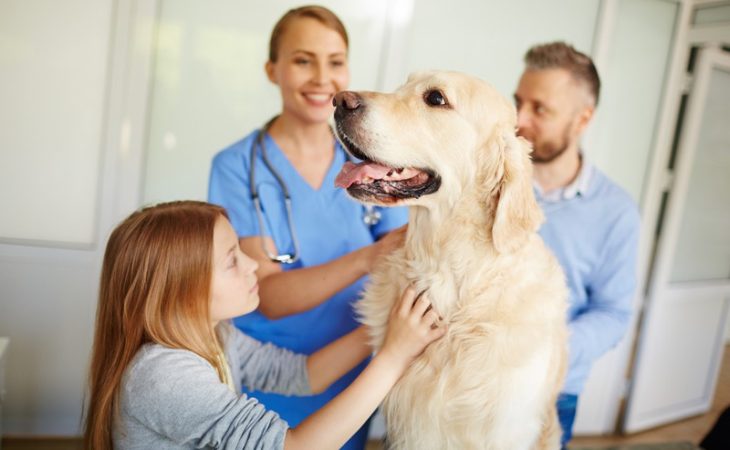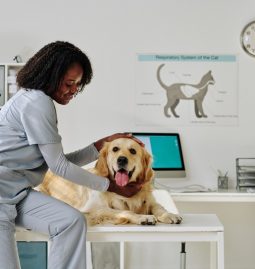As pet parents, we all want our furry family members to live long, happy, and healthy lives. To ensure that, one of our most vital tasks is to create a safe environment for them at home. Just as we child-proof a house for a toddler, it’s important to pet-proof our homes to prevent unnecessary accidents and health issues. There are lurking hazards around almost every corner, and being aware can make all the difference. Our four-legged friends rely on us to keep them safe, so let’s explore the common household hazards we should eliminate to keep our beloved pets healthy.
Household Toxins
Household Cleaners
From floor cleaners to detergents, many household cleaning products contain chemicals that can be harmful to pets. It’s easy for our pets to come into contact with these substances, whether by licking surfaces or walking on them. They might not realize it, but their curiosity could lead to ingestion of toxic agents. So, what can we do?
-
Store them out of reach: Keep these products in locked cabinets or on high shelves where pets can’t access them.
-
Choose pet-friendly products: Opt for cleaners labeled as safe for animals, or make your own natural alternatives using ingredients like vinegar or baking soda.
-
Rinse well: After cleaning, rinse any remaining residue thoroughly to minimize the risk.
Poisonous Plants
Plants add beauty to our homes and clean the air, but not all are safe for our furry friends. Some common indoor plants, such as lilies, philodendrons, and aloe vera, can be toxic to pets if ingested. Prevent accidents by:
-
Doing research: Before bringing a plant home, ensure it’s safe for your pet.
-
Pet-safe zones: Create areas where your pets can enjoy themselves without worrying about them nibbling on hazardous foliage.
Choking and Foreign Body Ingestion
Small Objects
Small objects like coins, jewelry, and toy parts can easily become choking hazards. Puppies and kittens, in particular, explore the world with their mouths and can swallow something they shouldn’t.
-
Keeping it tidy: Make a habit of picking up small items and keeping floors and low surfaces clutter-free.
-
Appropriate toys: Provide your pet with toys that are the right size and durable enough to withstand rough play without breaking.
Food Hazards
They may beg for a taste, but certain human foods are off-limits for pets. Chocolate, onions, garlic, and xylitol (often found in sugar-free gum) are notorious for being toxic to dogs and cats.
-
Safe snacking: Ensure all family members know what foods are safe to share with pets and which are not.
-
Secure the trash: A tight-fitting lid on your garbage can help prevent your pets from taking a dangerous dive into discarded food.
Injury Prevention
Secure Furniture
Energetic pets can easily cause furniture to tip over if they jump or lean against it. Secure shelving, TVs, and heavy items that can become objects that fall accidentally.
-
Anchor it down: Use furniture straps and anchors to secure top-heavy furniture to walls.
-
Monitor play: Encourage play in areas away from potentially hazardous items.
Electrical Cords
Chewing on electrical cords not only risks damaging your appliances but poses a serious electrocution hazard to pets. Safeguard your home by:
-
Concealing cords: Use cord covers or place cords behind furniture where they are inaccessible.
-
Providing alternatives: Supply your pets with plenty of appropriate chewing toys to distract them from forbidden items.
Escape Prevention
Secure Windows and Doors
We love fresh air, but open windows can be an invitation for a curious cat or dog to try a risky leap. Installing screens or barriers helps keep pets safely indoors.
-
Check screens: Regularly inspect screens for tears or gaps that need repair.
-
Door habits: Be mindful when entering and exiting to prevent a pet from slipping out.
Fencing and Outdoor Hazards
Backyards are great for pets to explore and exercise, but they can also present dangers. Broken fences can provide unintended escape routes, and certain mulches or garden chemicals can be harmful if ingested.
-
Maintenance checks: Regularly check and repair fencing to ensure it’s secure.
-
Garden safety: Choose pet-friendly lawn care products and research safe gardening practices.
Pet Health Management
While the elimination of hazards is critical, accompanying that with regular health checks is equally vital. For instance, scheduling a regular dog checkup in Kent, WA can help catch health issues before they become major problems.
Routine Veterinary Visits
Maintaining a partnership with a trusted vet clinic is essential. It ensures that, in addition to our efforts, a professional is monitoring our pet’s well-being. A place in Kent vet clinic can offer personalized advice tailored to your pet’s specific breed, age, and lifestyle.
-
Vaccinations: Stay on top of your pet’s vaccination schedule to prevent diseases.
-
Parasite control: Regularly check and treat for fleas, ticks, and worms.
In-Depth Health Checks
Sometimes, pets need more than just a physical examination. With access to a vet lab in Kent, WA, specific tests and screenings can be done to diagnose and address underlying health issues before they manifest into larger complications. This ensures your pet is not only safe from household hazards but also internally healthy.
-
Blood tests: Simple blood tests can reveal a lot about your pet’s health status, from detecting infections to assessing organ function.
-
Urine analysis: Checking a pet’s urine can diagnose kidney problems, diabetes, and more.
Final Thoughts
Maintaining a pet-safe household is a constant process that requires vigilance and dedication. We’ve got to think like our pets, anticipating their next move and mitigating risks proactively. By addressing the common hazards highlighted above and ensuring they have regular health checks, we are not just protecting them from immediate dangers but also contributing to their overall long-term health. After all, our pets are more than just animals; they’re cherished members of our family. Taking these steps is how we show them they’re loved and cared for, creating a haven for them to thrive in. So, keep an eye on those little details and enjoy the peace of mind that comes with a pet-safe home.








